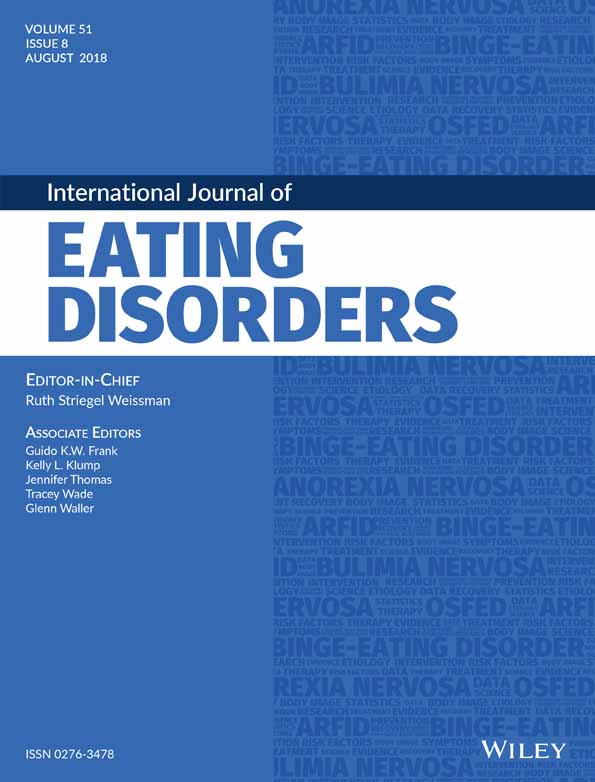A randomized controlled trial of unguided internet cognitive–behavioral treatment for perfectionism in individuals who engage in regular exercise
Abstract
Objective
Clinical perfectionism has been found to be a risk and maintaining factor in eating disorders (EDs), compulsive exercise, and athlete burnout. This study investigated whether an unguided internet cognitive–behavioral treatment (ICBT) for perfectionism would reduce ED pathology, compulsive exercise, and burnout in individuals who engage in regular exercise.
Method
Participants were randomly allocated to intervention (n = 38) or waitlist control (n =29). A generalized linear mixed model (GLMM) analysis was conducted pre and post treatment. A follow-up analysis was conducted with the intervention group at 3 and 6 months.
Results
The intervention group experienced a significant reduction in perfectionism (FMPS-CM: F[1,117] = 17.53, p = < .001, Cohen's d = .82), ED symptomology (EDE-Q: F[1,55] = 7.27, p = .009,Cohen's d = .53) and compulsive exercise (CET: F[1,116] = 10.33, p < .001,Cohen's d = .63). The changes attained post-treatment were maintained within the intervention group at 3-month (FMPS-CM (t[1,100] = 3.67, p < . 001, Cohen's d = .85) (EDE-Q (t[1,50] = 2.20, p = .03, Cohen's d = 1.26) and 6-month follow-up (FMPS (t[1,100] = 2.74, p = 007, Cohen's d = .70) (EDE-Q (t[1,50] = 2.18, p = .03, Cohen's d = 1.26).
Discussion
The results indicate unguided ICBT for perfectionism can have a significant impact on perfectionism, compulsive exercise, and ED symptomatology.




